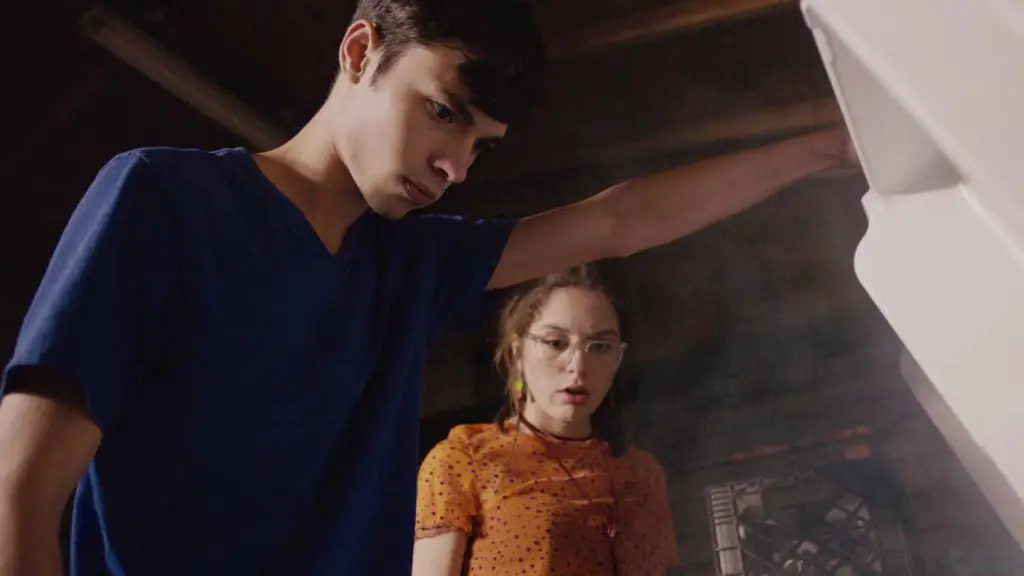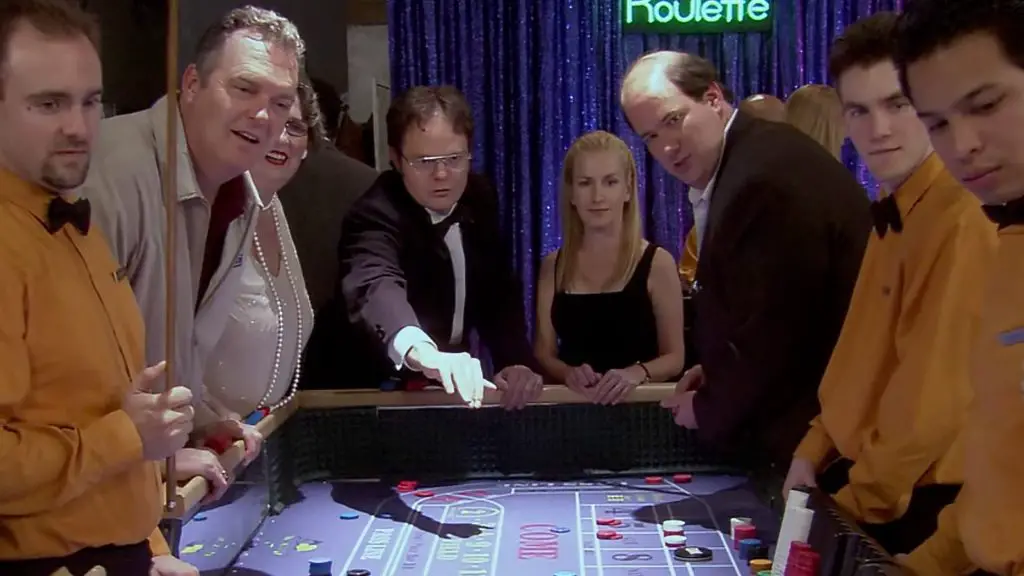
In everything society deems “romantic” at some point or another—opium addiction, war, tuberculosis—lurks something hideous and powerful and mysterious. Russian roulette (probably not the PC term) is romantic in this same way. There’s something intriguing about setting the highest stakes imaginable, something enthralling about tempting fate—the world’s myths are based on it. In some way, what is “romantic” is what relieves us of control as it simultaneously grants us another, perhaps more ultimate, control. It is always compelling when what is most dear is at risk. Part rated-PG snuff film and part psychological drama, “Roulette” plays with and revels in this romance. Four childhood friends (Justin Whalin, Scott Weinger, Bret Roberts, and Rob Greenlea) accidentally kill a woman when an unknown scheme goes awry. Covering up the murder is impossible, as the evidence will more than incriminate all of them; the crime is apparently heinous enough to send them to the electric chair. In order to spare each other, they decide one of them will take the fall. Chance, in the form of a game of Russian roulette, will finally determine who sacrifices his life and takes responsibility for the crime.
In any film, when I see someone bring a revolver to his or her head, it’s disturbing—even if it’s Tim Robbins in “Cadillac Man”—maybe I’m a baby. And so, “Roulette” is disturbing. It’s impossible not to think of cinema’s most famous Russian roulette scenes in “The Deer Hunter,” Christopher Walken’s blank and absent face, but this is an entirely different sort of thing. A thing perhaps only Tim Day, co-screenwriter for two “Hellraiser” films, could write. The acting, the camera work (Herbert Davis), the music (Jim Latham), everything that constructs this film is in service to this final game of Russian roulette. If anyone besides me would like to get postmodern about it (and read way too much into it), you could say this short film is a kind of meta-film in which the plot, music, etc. solely exist for the sake of the game as human existence ultimately exists for the sake of death. To translate it into terms thematically apropos: death trumps all. Once you get over the Wonder Years-esque childhood flashbacks and ignore that the premise of the roulette game is flimsy, “Roulette” will transfix you like the accident you crane your neck to see.

